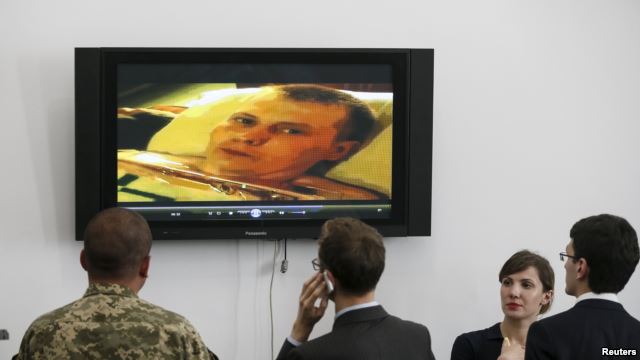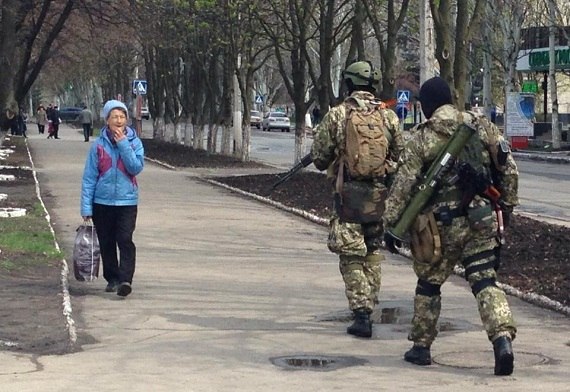The UK has had for many years a stable democratic process, with strong institutions. But what happens after a while is that those institutions become themselves resistant to change. They develop and operate on the default setting that peacetime rules, regulations, procedures are the norm. And so when you get a situation of emergency, of a real live war, it takes those institutions some time to adapt to change.
But generally, it is accepted by the population and the political system that when you do have a war, there has to be a very significant change for a very limited time until you’ve won the war. And that means you have to suspend a lot of the democratic processes, the rights of the individual for the period of hostilities. But you also then need faith in the system and the process, so at the end of the war, you go back to the democratic system. You don’t maintain the wartime mechanisms.
And that’s not easy, it’s quite painful, and it’s hedged around with the usual system where the politicians and political parties are fighting for power. So it’s quite complex.
But the bottom line is: when you’re at war, and it’s a war for national survival, you have to operate differently than when you’re in a peacetime situation. The population has to accept and support that there is a reduction in civil liberties, that there is a reduction in democratic process, that things are run more by decree than by legislation. The election process has to be suspended until such a time that you know there is no longer a national emergency.
So all of these issues make it more difficult for Ukraine because in the 19th and 20th centuries, war was a clearly distinguishable social phenomenon. The country knew when it was at peace and when it was at war. In the most brutal sense, Britain in 1940 knew it was at war because German bombs were dropping on this building, quite literally.
If you think back to Karl Marx, he was a big fan of war, because war has a revolutionizing effect on society. Why? Because the speed of change in wartime overtakes the capacity of institutions to adapt to change, and those institutions which cannot serve the purpose collapse and you end up with a revolution. That’s why he thought war was such a good idea.
In his view, the important thing about war was not killing, but change. War is change. If war is change, change is war. If you have a really rapid change in society then this change has a revolutionizing effect on society, just like war. If the society has a strong and robust political system with the support of the people it stays; if it hasn’t, then it collapses, because the structure collapses. And as a result, in today’s global change, we have a crisis of governance around the world. And countries with governance processes which were inadequate – those governments collapse. In the Arab world, we call it the Arab Spring; in Ukraine, we call it the Maidan. That’s how I would interpret it.
But although war is change and change is war, we are now facing a wartime situation in effect. There is another aspect to this as well, because the character of war has changed, so that now instead of having an obvious gap between war and peace, these have been mingled. What we now have is continuous warfare without an obvious bilateral nature. Everything has become a weapon. And it’s this kind of warfare where Ukraine is on the front line. We call it “hybrid warfare” because we try to invent terms. But in this Russia is using Ukraine as a test polygon.
So Ukraine has two really important problems to solve at the same time. One: it has to come to terms with rapid change in the world and society, which necessitate it to up its game and improve its governance. At the moment, it’s failing that test. Secondly, it has an enemy which is focusing on it to try to destroy it. So it has to be able to develop its capacity to fight two types of warfare simultaneously: the warfare which is precipitated by a global change which all countries are dealing with and some are succeeding better than others; but then the focused attack is coming from Russia, and in all of that, the nature of that war is no longer how it was during WWII; it’s hybrid warfare in which everything is a weapon – politics, economics, information, energy, cyber, and, ultimately, tanks.
So that’s the challenge, and somehow, Ukraine has got to find a way, and we have to help it find a way, because it’s important for us and not just for Ukraine, of getting the population to understand that it is at war, but it is a new kind of war; and get the political elite to learn how to fight the war; and thirdly to find a way to get the people to understand how to develop a war-time mentality that deals with this kind of hybrid war. And part of that is knowing what democratic institutions need to be amended or suspended to allow the country to fight the war successfully, and how to ensure that the population has faith that when the war ends – and that the war will have an end – that then the freedoms and rights which were suspended when the war started to enable the country to fight the war – will be returned to them. And there is no ready-made answer for this, no silver bullet that solves the problem. It requires the work of society, of people in society thinking how and proposing the kind of change that needs to take place.
And this is important for us because we’re facing the same problem. We’re facing this war of change as well. We’re facing being attacked by other countries who undermine our institutions; we have to protect those institutions, to fight the war and not in fighting the war to lose the very institutions that we value. That’s the danger.








